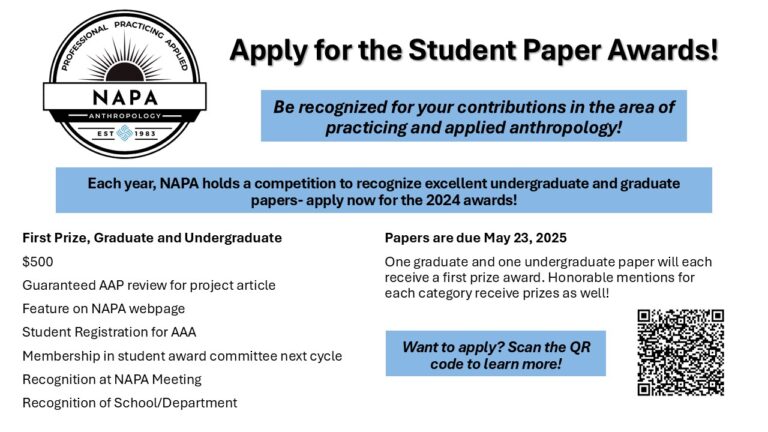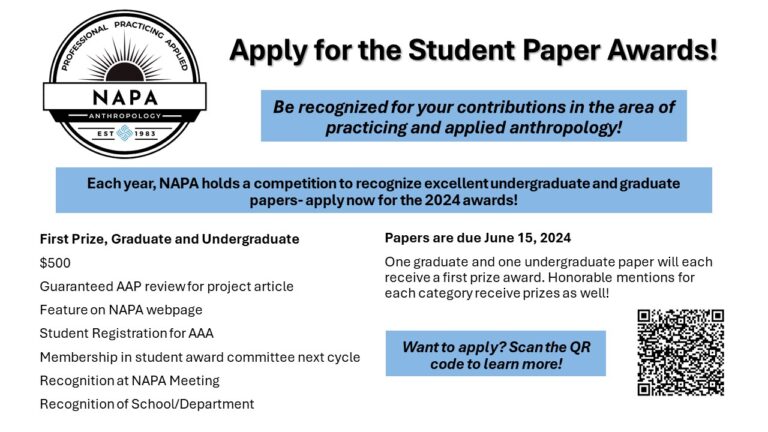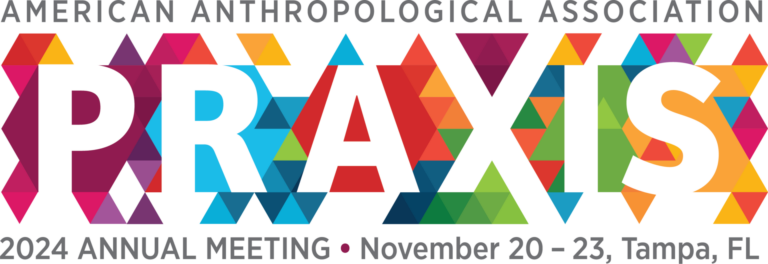National Association for the Practice of Anthropology
Student Awardee Information 2005
First Place: Jason Paiement, Ph.D. Student (McGill University) “Anthropology and Development”
The scope for non-economic social scientists to influence the design and implementation of development policies and projects has expanded considerably since the 1970s. Many factors have contributed to this convergence between anthropology and development, and given the broad scope of these issues and the vast literatures that exist on each this essay is of necessity synthetic. In it I have tried to identify a number of key themes and trends, and to sketch some basic propositions about two aspects of this relationship that seem to me to be the most significant from the standpoint of motivating ongoing debates in the social sciences and development circles about the relevance of contributions of social science concepts, theories, and methods to development studies, projects and policies.
First Place: Jacob R. Hickman, Ph.D. Student (University of Chicago) “Is it the Spirit or the Body?: Syncretism of Health Beliefs among Hmong Immigrants to Alaska”
Due to the emphasis within the Hmong folk health system on spirituality and non-physiological etiologies, there has been a significant degree of conflict between Hmong refugees and the Western health care system. This conflict has have been well documented in the literature. The present study, however, seeks to explain how and why the Hmong health system is developing into a syncretism of the folk beliefs and elements of the Western medical paradigm. This syncretism has lead to an intricate system of physical / spiritual diagnoses which significantly affects the way health care decisions are made within the Hmong community. Irwin and Jordan’s (1987) model of the authoritative construction of medical knowledge is utilized to implicate local discourse concerning Western medical hegemony (including consequent legal intervention) as a significant factor in this syncretism. [Hmong, Folk Health, Syncretism, Medicalization]
Second Place: Alejandro Angee, Bri Barclay, Jasney Cogua-Lopez, and Emily Eisenhauer (Florida International University) “Community Knowledge and Attitudes towards Refugees and Asylees in Miami-Dade and Broward Counties: An Analysis for the International Rescue Committee”
During the last sixty years, the South Florida population has been changing: it has grown in size, and has seen changes in its socio-economic and demographic characteristics. Historical events and international political disputes have produced a very diverse and multi-ethnic community. Additionally, South Florida’s geographic position also has helped create a special social and economic relationship with other communities, especially in Latin American and Caribbean countries. According to the U.S. Census Bureau (2004), more than 35 percent of Miami-Dade and Broward county residents are foreign born, and 45 percent are of Hispanic descent. As hundreds of people arrive in South Florida every day, for a variety of reasons, this community continues to change and develop.



